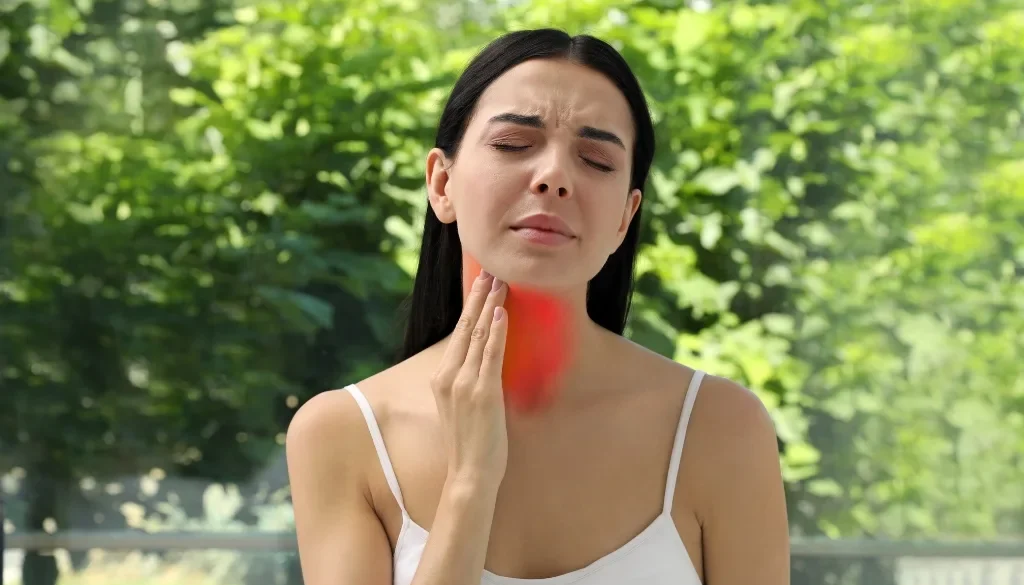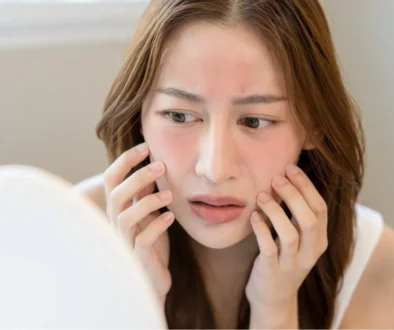Hypothyroidism Treatment in Dubai: Symptoms, Causes, and Expert Care
Do you constantly feel tired, experience unexpected weight gain, or find it difficult to concentrate? These symptoms might be more than just stress or lifestyle-related, they could be signs of hypothyroidism. In a busy, health-conscious city like Dubai, early detection and effective treatment are essential. If you’re dealing with hypothyroidism in Dubai, this guide will help you learn what it is, how to recognize the symptoms, and where to find the right specialist for treatment.
What is Hypothyroidism?
Hypothyroidism means your thyroid isn’t making enough hormones, which your body needs to work properly. These hormones help regulate essential body processes, including your body’s energy expenditures, energy level, heart rate, and body temperature. When thyroid hormone levels decline, your body slows down which can lead to symptoms that make you not feel well, and can even impair functionality in your daily life.
Common Causes of Hypothyroidism
Several factors can lead to hypothyroidism, including:
- Autoimmune diseases, such as Hashimoto’s thyroiditis (the most common cause).
- Iodine deficiency is rare in Dubai due to regulated dietary standards.
- Thyroid surgery or neck radiation.
- Certain medications, like lithium or amiodarone.
- Congenital hypothyroidism (present from birth).
A skilled thyroid specialist in Dubai will take the time to understand the cause of your thyroid issue before starting any treatment.
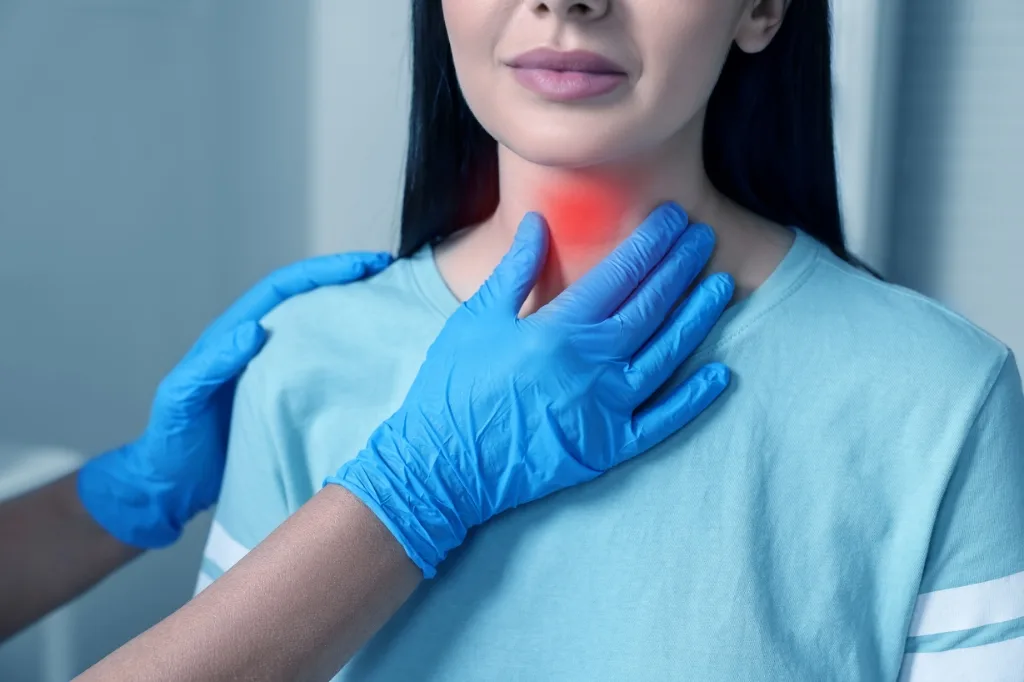
Symptoms of Hypothyroidism
The symptoms of hypothyroidism usually appear gradually and are often confused with general tiredness or other health issues. However, if you’re experiencing several of the following signs, it’s wise to seek professional evaluation:
- Persistent tiredness and fatigue
- Unexplained weight gain
- Depression or low mood
- Constipation
- Sensitivity to cold
- Dry skin and brittle nails
- Puffy face or hoarseness
- Memory issues or brain fog
- Slow heart rate
- Menstrual irregularities or fertility problems
- Thinning hair or hair loss
These symptoms vary in intensity and may worsen if left untreated. Seeking early hypothyroidism treatment can prevent complications and restore balance to your health.
Diagnosis: How Hypothyroidism is Detected
A thyroid specialist in Dubai will begin with a detailed consultation, including a review of your symptoms, medical history, and lifestyle. The diagnostic process typically involves:
- Blood tests, especially:
- TSH (Thyroid Stimulating Hormone) – Elevated levels may indicate hypothyroidism.
- Free T4 – A low T4 level confirms underactive thyroid function.
- Thyroid antibodies – Helps determine if an autoimmune condition is involved.
Imaging (such as thyroid ultrasound) may be recommended in certain instances, especially if a nodule or goitre is present.
Hypothyroidism Treatment in Dubai: What to Expect
The primary treatment for hypothyroidism is the intake of thyroid hormone medication, which is usually levothyroxine, a synthetic (artificial) analogue of the hormone your thyroid would have produced.
Here’s how this treatment works:
- Daily medication: In most cases, the medication is taken once daily on an empty stomach in the morning.
- Regularly monitoring: Your doctor will regularly check and measure your TSH and T4 levels to ensure you are getting the proper dosage.
- Lifelong management: Hypothyroidism can’t be cured, but with the proper treatment and regular checkups, it can be managed successfully.
Every individual responds differently to medication, so working closely with a trusted thyroid specialist is crucial for long-term success.
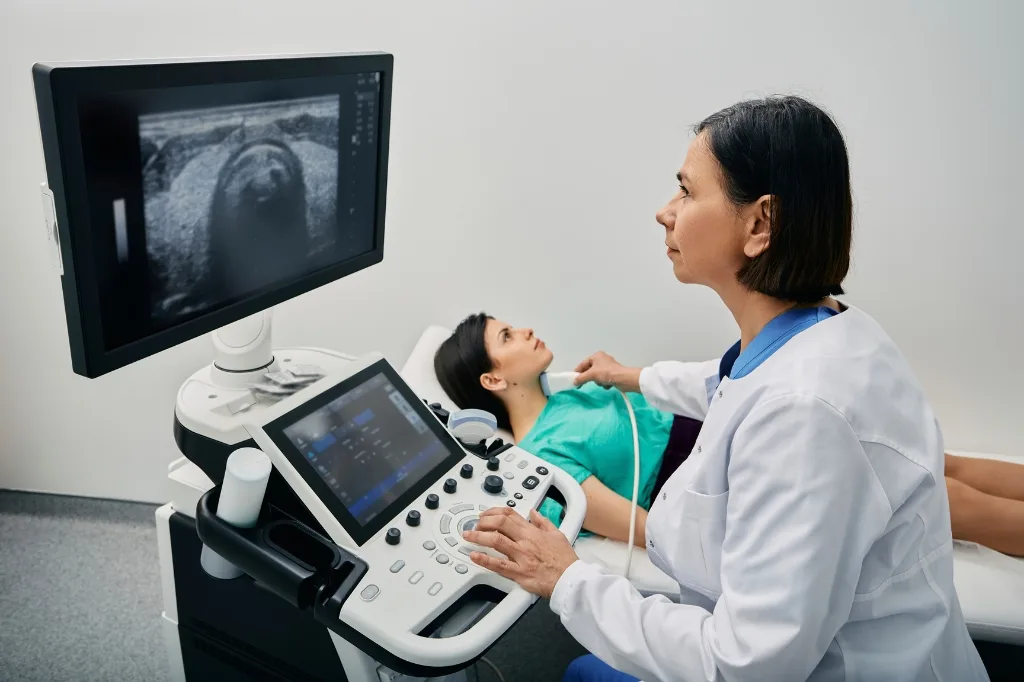
Why Choose a Thyroid Specialist in Dubai?
Dubai is home to highly experienced endocrinologists and internal medicine specialists who focus on thyroid disorders. Finding the right doctor can help you feel better faster and manage your symptoms more effectively.
When selecting a thyroid specialist in Dubai, consider the following:
- Experience in managing thyroid conditions like Hashimoto’s, goitre, and nodules.
- Ability to provide comprehensive diagnostics and personalized treatment plans.
- Access to advanced lab facilities and continuous follow-up care.
- Patient-centered approach with a focus on education and long-term health.
Lifeline Clinic Dubai offers specialised thyroid consultations with doctors who understand the nuances of hormonal imbalances and how they affect daily life.
Lifestyle Support for Hypothyroidism
Even though medication is an important basis for treatment, remedies such as lifestyle changes can support you in recovery and enhance your health.
Here are some options:
- Eat a balanced diet that contains selenium, zinc and iodine (only under supervision).
- Limit your consumption of raw vegetables such as cabbage, broccoli and cauliflower, as eating too much may influence your body’s ability to use its thyroid naturally.
- Continue moving with gentle exercises like walking, yoga, or swimming; they’re gentle on your body and beneficial for your health.
- Manage stress, which can further disrupt hormonal balance.
- Sleep well – 7–9 hours per night is essential for hormone regulation.
Your thyroid doctor in Dubai may suggest that you also see a nutritionist or wellness professional to help you with these lifestyle changes.
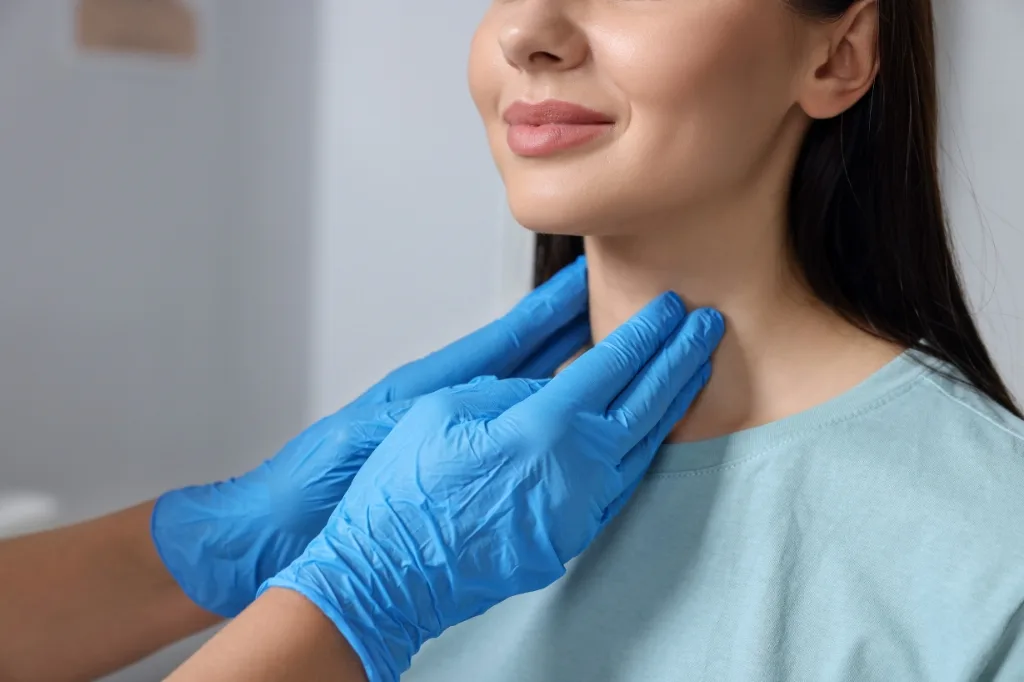
When to Get Help Right Away
Although hypothyroidism is usually manageable, untreated or severe hypothyroidism can lead to:
- Goitre (an enlarged thyroid)
- Myxedema (a rare, life-threatening condition)
- Infertility
- Cardiovascular issues
If you experience symptoms such as extreme fatigue, confusion, low blood pressure, or trouble breathing, seek medical attention immediately.
Book Your Hypothyroidism Consultation in Dubai
Don’t ignore fatigue and unexplained symptoms. If you suspect you might have a thyroid issue, especially hypothyroidism, an early diagnosis and treatment may improve the way you feel. At Lifeline Clinic Dubai, our team is dedicated to providing thoughtful, evidence-based care adapted to your individual health care needs.
Make an appointment with a leading thyroid specialist in Dubai and start feeling better now.

